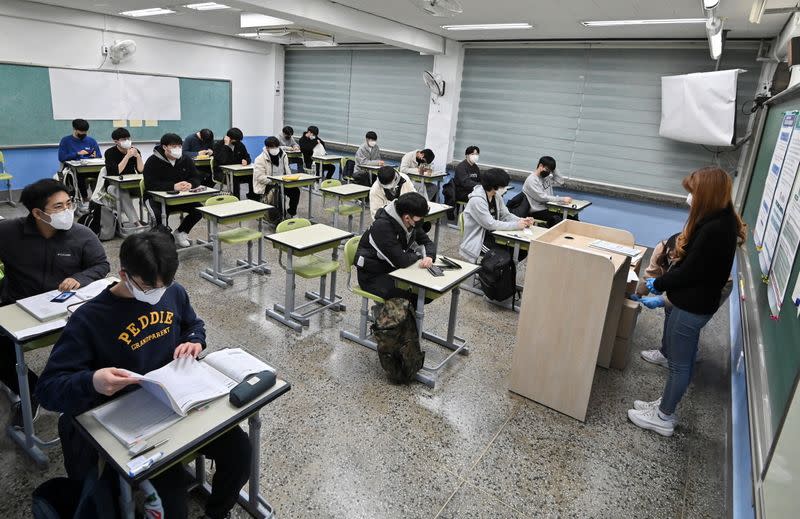- A-29, Industrial Area, Site IV,
Sahibabad, Ghaziabad, UP, India. - (+91-120) 2896063
info@bhartiyagroups.com


As hundreds of thousands of disguised students gathered to schools on the country's highly esteemed college entrance exam despite the mounting concerns about the delta-driven spread, South Korea announced its biggest daily surge in coronavirus infections ever since start of pandemic.The Korea Disease Control and Prevention Agency announced 3,292 new cases the second successive day with over 3,000 cases, raising the national caseload to 406,065.
As per the CDC, 29 virus victims died within the last 24 hours, increasing the total number of deaths to 3,187, with 506 more in serious or critical condition.The Education Ministry said that about 509,000 pupils took the one-day exam at 1,395 places across the country, including hospitals and shelters where 68 infected students and 105 others in self-quarantine completed the hours-long test in isolation. This was a severe situation even though the government was trying to increase the PSA oxygen plant at its max.
Before entering the classrooms for the test, students were forced to also have their temperatures taken, or those with fevers are being sent to separate testing facilities.
The annual exam, known as the "Suneung", or College Scholastic Ability Test, is vital in the skills training country, at which a person's career, social standing, and even marriage prospects are all greatly influenced by which university they attend.During the English-listening portion of the test, transportation authorities planned to briefly suspend airline landings and departures at airports to minimize noise.
Employees at commercial and government enterprises came in late, and the country's stock market began an hour late to allow test-takers access to the roadways."(Students) weren't provided sufficient classes (due to COVID-19), so I often noticed my child was worried and struggling", said Seo Kwang-sun, an experiment taker in Seoul.
While schools have indeed been alternating between online and offline lessons, the Education Ministry had planned for the a full return to classrooms to begin next year in needed to aid close education gaps and fit with the government's pandemic strategies.Starting soon, officials relaxed social separation restrictions in what they termed as the first step toward resuming some pre-pandemic normal.
Officials cited concerns about the pandemic's effect on the economy in allowing larger social gatherings and prolonged indoor dining hours at restaurants, and expressed confidence that improving vaccination coverage and increase in number of Air separation plants would keep hospitalizations and deaths down even when the virus started to expand.
However, there was an increase in serious cases and deaths among older people who already have refused vaccines or whose immunities have waned after becoming injected early in the mass vaccination campaign, which began in the late February, inquiring about whether the decision to loosen virus restrictions was quick.
PSA oxygen plant, Air separation plants, Covid-19, south korea daily cases, south korea corona, covid south korea, corona update in south korea







